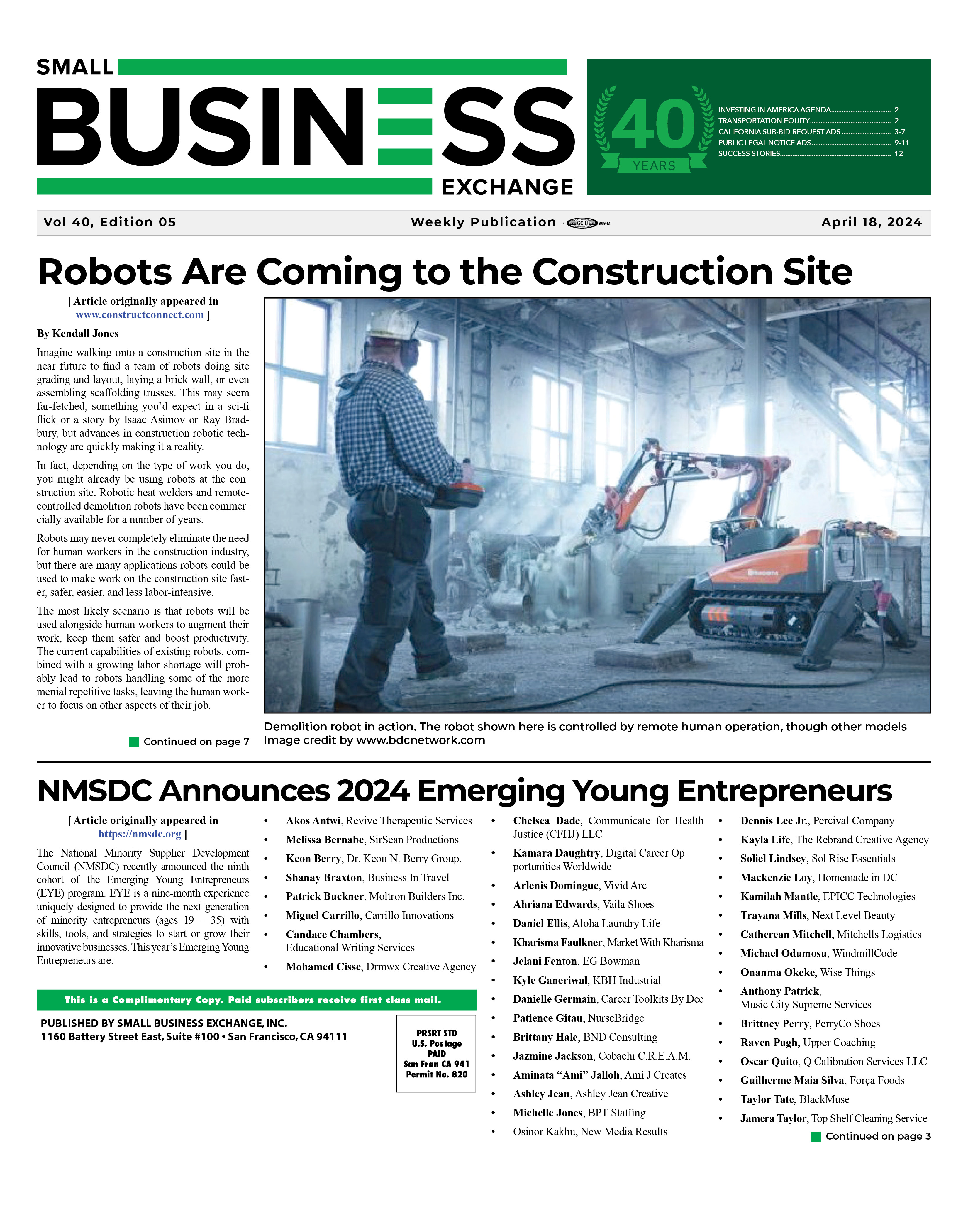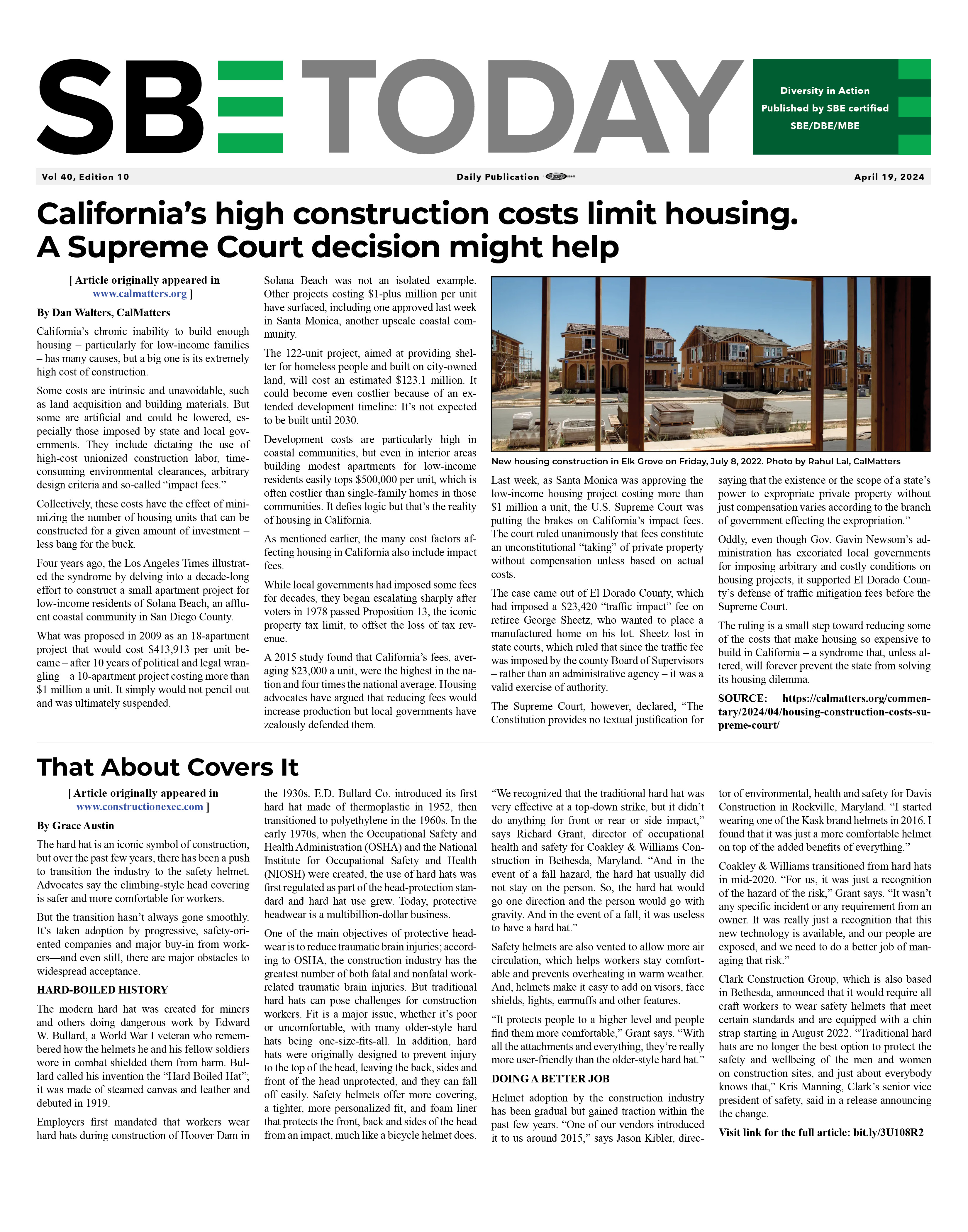|
|
Mayor London Breed Announces Balanced Budget that Focuses on Building San Francisco Back from COVID-19
06/14/2022
Two-year budget commits to strengthening economic recovery, restoring public safety, supporting workers and families, and building on efforts to reduce homelessness and address behavioral healthSan Francisco, CA — Mayor London N. Breed today unveiled her budget proposal for Fiscal Years (FY) 2022-2023 and 2023-2024. The annual $13.95 billion for FY 2022-23 and $13.85 billion for FY 2023-24 follows months of collaborative work with elected officials, City departments, non-profit organizations, neighborhood groups, merchants, residents, and other stakeholders. Approximately half of the budget consists of self-supporting activities, primarily at the City’s Enterprise departments, which focus on City-related business operations and include the Port, the Municipal Transportation Agency, the Airport, and the Public Utilities Commission. The General Fund comprises the remaining half, which support public services such as public health, housing, support for those experiencing homelessness, safety and fire services, parks management, and others. “San Francisco is getting back to basics, which means focusing on our economic recovery, creating a safe and welcoming city for all, supporting workers, children and families, and continuing the investments we’ve made to reduce homelessness in this City,” said Mayor Breed. “We have a lot of work to do, but by building on these core services that our residents deserve, we can do the work of bringing our city back from the challenges of COVID and create a brighter future.” Economic Recovery The Mayor’s proposed budget invests $48.9 million over the two years to promote the City’s economic recovery. This will include new direct support for small businesses, as well as new events, activations, public space improvements, and marketing efforts to support areas that rely on workers, tourists, and other visitors. The funding proposal will also continue the City’s existing Ambassador programs located in areas like Mid-Market, Union Square, Downtown, South of Market, and along the Embarcadero. The Mayor’s proposed budget also includes $7.2 million over the two years to support an enhanced Tenderloin cleaning initiative, which will expand Public Works’ current cleaning operations in the area. In addition to enhanced cleaning efforts, the Mayor’s proposed budget includes $5.0 million over the two years to support enforcement of the street vending ordinance, developed in partnership with the Board of Supervisors. Public Safety and Alternatives to Policing Since the beginning of COVID-19, the Police Department has experienced both a high rate of officer attrition and difficulty attracting new officers to the Department. To address this, the Mayor will fund a Police Hiring Plan to fill the City’s approximately 200 vacant police officer positions. The budget supports this plan by providing:
The City made significant investments during the last budget cycle to develop new alternatives to law enforcement response strategies. This budget maintains investments for the Street Crisis Response Teams (SCRT), Street Wellness Response Teams (SWRT), and Street Opioid Response Team (SORT). Further expanding on these investments, the Mayor’s proposed budget invests in strengthening community-based outreach teams to improve the City’s response to non-emergency and non-medical calls for service that had been the responsibility of law enforcement previously. Enhancements include new Crisis Counselors, which will be embedded in the 9-1-1 Call Center and can help to respond to mental and behavioral health calls as part of the City’s services-first strategy. Homelessness and Behavioral Health The City has made bold new investments in homelessness and housing over the last several years through the Mayor’s Homelessness Recovery Plan, which has helped the City experience a 15% reduction in unsheltered homelessness, according to the latest point-in-time count. Building on these efforts, the proposed budget includes funding for ongoing operations of 410 new adult shelter beds in a non-congregate or semi-congregate setting that were acquired in the current fiscal year, as well as continuing operations for three Shelter-in-Place (SIP) hotels that would otherwise close at the end of 2022. The proposed budget also continues funding for Safe Sleep sites in the Mission and Bayview districts, a 70-unit cabin site on Gough Street, and adds one-time funding to create a new 70-unit cabin site in the Mission. The Mayor’s proposed budget also invests in strategies to end homelessness and provide housing subsidies for transgender and gender non-conforming (TGNC) residents who disproportionally face barriers to housing, services, and employment. These investments fund a citywide strategic goal to end Transgender Homelessness in the next five years. The Mayor’s proposed budget includes funding to continue the implementation of key aspects of Mental Health SF. Expanding the City’s behavioral health treatment bed capacity remains a priority, and the budget includes $57.5 million over the two years for the operation of newly-acquired bed facilities. This funding will support the goal of reaching 400 beds, greatly improving access to these services for those who need them most. Labor and Wage Equity The most significant, ongoing investment in the upcoming two-year budget is a $240 million investment in the City’s public and non-profit workforce. This includes providing a 10 percent wage increase over the period of the two-year budget for non-sworn City workers. The budget also fully restores a 3 percent wage increase for the City’s sworn employee unions. It also increases wages for non-profit workers next fiscal year, in line with increases for public sector employees. Additionally, the budget further invests in the wages of frontline staff in the City’s permanent supportive housing buildings, including case managers, janitors and desk clerks. The Mayor’s proposed budget also includes ongoing funding for early educator raises that were recently launched by the Mayor’s Office and the Office of Early Care and Education (OECE). This investment will maintain the $8,000 to $30,000 annual raises of the over 2,000 City-funded early educators, enabling educators to be more fairly paid for their crucial work, and also helping attract new, quality educators to the field. Children, Youth, and Families The proposed budget includes nearly $25 million each year to support four recommendations from the Mayor’s Children and Family Recovery Plan, providing childcare vouchers for low-income families and transition-aged young adults with children; increased staffing, and parental support and training at Family Resource Centers; and the creation of an improved system to help families identify and sign up for services. The Mayor’s proposed budget aims to support overall child and family wellness through an annual $5 million investment. These funds will support UCSF hospital clinicians to work with community-based organizations (CBOs) to provide onsite support to children and youth, train and coach CBO staff to identify signs and symptoms of mental health needs, provide clinical support to CBO staff, and increase agency capacity to provide wellness and referral services. One-Time Projects and Housing The Mayor’s proposed budget makes significant one-time investments in housing and other projects that span a wide range of needs. The budget adds funding to increase the number of units subsidized under the existing Senior Operating Subsidies program, funding for emergency repairs and capital improvements identified in existing non-profit affordable housing projects, and funding to meet the needs of the Sunnydale Commercial and Community Center. This funding will be targeted towards a gym and community center that are envisioned for this HOPE SF project. Hiring and Contracting Reform The City’s response to the COVID-19 pandemic over the last two years demonstrated what’s possible when City departments collaborate and move quickly in a crisis. But the collective focus on the emergency health response also created delays in hiring, contracting, and other City processes. The Mayor’s proposed budget funds a new project team across the City Administrator’s Office, the Controller, the Department of Human Resources, and the City Attorney to develop and implement reforms to core City processes that will promote faster hiring and contracting and ultimately improve the provision of services across City government. This budget also makes investments in several City departments including the City Administrator’s Office, Public Works, Public Health, and others to increase human resources staffing to more help bring more people into City employment. Investments in Capital and Information Technology The proposed budget prioritizes investments in critical infrastructure, including $216 million over the two-years for capital infrastructure investments, funded through a mix of General Fund and debt-support, which will prevent the City from falling far behind on its capital and infrastructure needs. Notable capital investments include renovation of the Chinatown Public Health Center, street and sidewalk repairs, seismic retrofit planning for the family shelters, ADA-compliant renovations, and critical roof repairs to several City buildings. Financial Resiliency Despite the stark economic impact of COVID-19, San Francisco weathered the last several budget cycles without any layoffs or major service reductions, all while making critical investments that support vulnerable residents and recovery. This would not have been possible without making fiscally responsible choices – years of building and maintaining reserves and constraining new, ongoing spending. Given great uncertainty about the future of the local economy, it has never been more important to maintain reserves. In order to hedge against growing structural deficits and the need to reduce expenditures, the proposed budget leaves approximately $130 million in the Fiscal Cliff Reserve, established in the prior budget cycle to protect against dramatic projected shortfalls due to the loss of one-time federal revenue. Mayor Breed’s complete budget proposal for FY 2022-23 and 2023-24 can be found here.
The Board of Supervisors’ Budget and Appropriations Committee holds public hearings on the budget in June, makes recommendations for approval, and makes changes to the budget before it goes to the full Board. The entire budget is heard and must be voted on and approved by the full Board of Supervisors by August 1st. Finally, the budget returns to the Mayor for signature and final adoption. Back To News |
|




